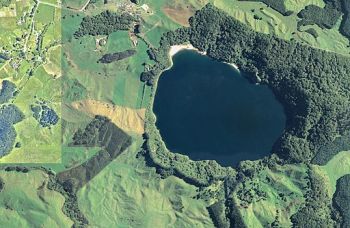Photogrammetry: Difference between revisions
Rmanwaring (talk | contribs) No edit summary |
No edit summary |
||
| Line 18: | Line 18: | ||
==<noautolinks>Best Practices Resources</noautolinks>== | ==<noautolinks>Best Practices Resources</noautolinks>== | ||
{{Document Icon}} [[National Engineering Handbook: Chapter 2 - Engineering Geologic Investigations | National Engineering Handbook: Chapter 2 - Engineering Geologic Investigations, NRCS | {{Document Icon}} [[National Engineering Handbook: Chapter 2 - Engineering Geologic Investigations | National Engineering Handbook: Chapter 2 - Engineering Geologic Investigations, NRCS]] | ||
{{Document Icon}} [[Geophysical Exploration for Engineering and Environmental Investigations (EM 1110-1-1802) | Geophysical Exploration for Engineering and Environmental Investigations (EM 1110-1-1802), USACE | {{Document Icon}} [[Geophysical Exploration for Engineering and Environmental Investigations (EM 1110-1-1802) | Geophysical Exploration for Engineering and Environmental Investigations (EM 1110-1-1802), USACE]] | ||
{{Document Icon}} [[Design of Small Dams | Design of Small Dams, USBR | {{Document Icon}} [[Design of Small Dams | Design of Small Dams, USBR]] | ||
==Trainings== | ==Trainings== | ||
Revision as of 22:50, 10 July 2023

|
| Aerial Photograph |
"Photogrammetry is generally defined as the art and science of making accurate measurements from aerial photography. For the purposes of this manual, aerial photography will be limited to near vertical photography taken from a conventional fixed-wing or rotary-winged aircraft of satellite. Aerial photographs, as they are initially exposed, do not provide for accurate measurements. Distortions in the camera systems coupled with the curvature of the earth must be accounted for and eliminated in a series of techniques and processes in order to make measurements at a predicted accuracy across the area of coverage of an aerial photograph. These photogrammetric processes allow the user to view three dimensions from a two-dimensional surface (aerial photograph)."[1]
Photogrammetry can be used to create detailed geologic maps that can be helpful in dam design.
Best Practices Resources
![]() National Engineering Handbook: Chapter 2 - Engineering Geologic Investigations, NRCS
National Engineering Handbook: Chapter 2 - Engineering Geologic Investigations, NRCS
![]() Geophysical Exploration for Engineering and Environmental Investigations (EM 1110-1-1802), USACE
Geophysical Exploration for Engineering and Environmental Investigations (EM 1110-1-1802), USACE
Trainings
Citations:
Revision ID: 7060
Revision Date: 07/10/2023
